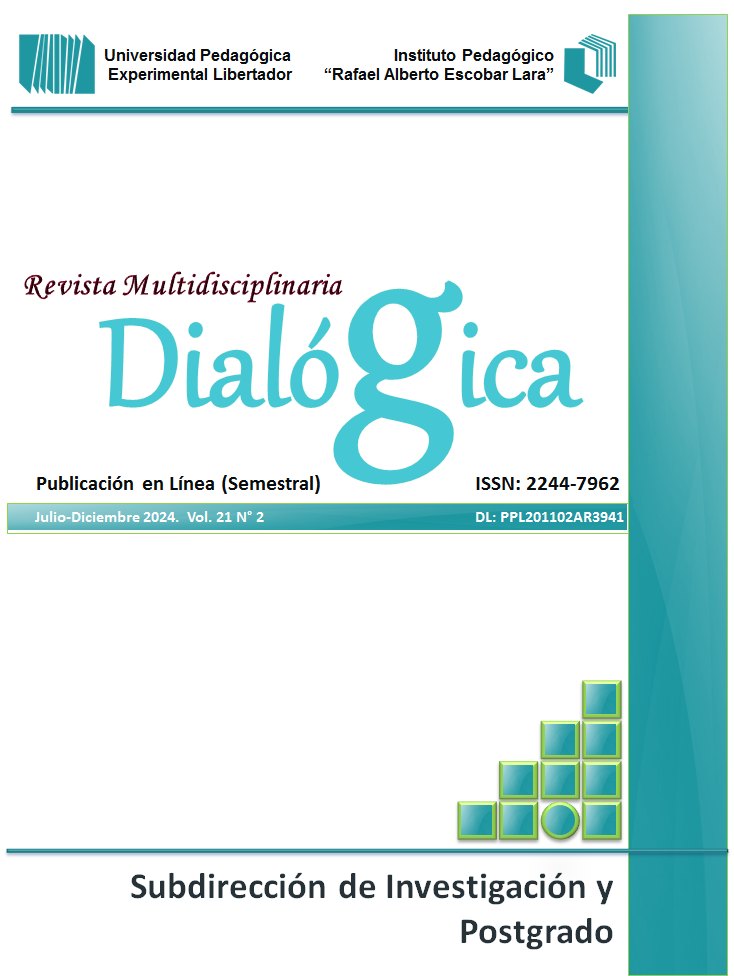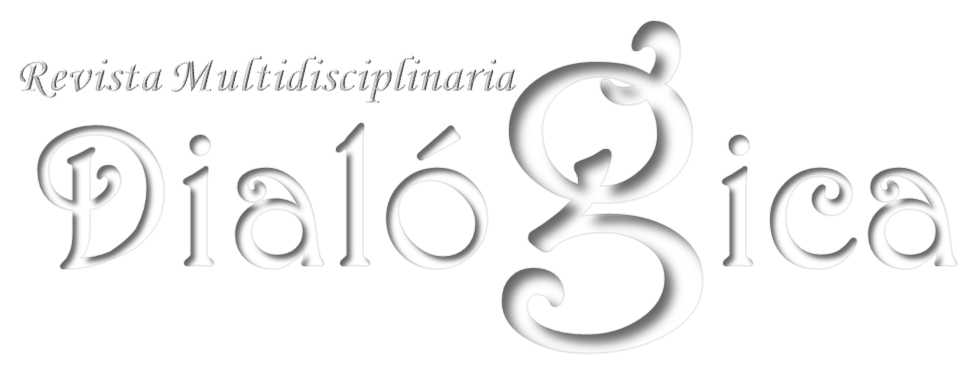PROBLEM-SOLVING AND MATHEMATICAL COMPETENCIES: A PERSPECTIVE FROM HIGHER EDUCATION
DOI:
https://doi.org/10.56219/dialgica.v21i2.3302Keywords:
Problem-solving, mathematical competencies, higher educationAbstract
In this research, the objective was to analyze the problem-solving skills at various stages of the teaching and learning process, considering the characteristics of mathematical competencies from a higher education perspective. By applying a comprehensive competency-based approach, the aim is to enhance all components of mathematical problem-solving skills and strategies, following the postulates of Pólya (1965). Methodologically, a documentary design with a heuristic review of sources was employed, examining the fundamental principles of competency-based mathematics teaching. Additionally, a coherent system for content selection in mathematics teaching for higher education students was developed, based on previous research. It was concluded that universities can improve and feedback their organizational structures and procedures, redefining the role of assessment in certain elements of learning related to problem-solving and mathematical competencies.
References
Álvarez, C. (2023). Políticas educativas y científicas en Venezuela: reflexión sobre las necesidades actuales de conocimiento. Dialógica Revista Multidisciplinaria, 20(1), 135–147. https://doi.org/10.56219/dialgica.v20i1.2252.
Ausubel, D. P., Novak, J. D., y Hanesian, H. (1983). Educational psychology: A cognitive view. México: Editorial Trillas.
Bruner, J. (1966). Constructivist Theory. [Sitio web]. http://tip.psychology.org/bruner.html.
Carrillo, J., Contreras, L. C., y Zakaryan, D. (2014). Opportunities to learn and mathematics competences: two case studies. Bolema: Mathematics Education Bulletin, 28(48), 89-109. https://doi.org/10.1590/1980-4415v28n48a05 DOI: https://doi.org/10.1590/1980-4415v28n48a05
Castro, J. (2006). Competencias matemáticas del niño de la I y II etapa de educación básica. EquisAngulo, revista electrónica de educación matemática, 2(3). http://www.saber.ula.ve/bitstream/123456789/20318/1/articulo3.html
Cristancho, D. M., y Cristancho, L. Y. (2019). Aprendizaje basado en problemas en matemáticas: el concepto de fracción. Educación y Ciencia, (21), 45–58. https://doi.org/10.19053/0120-7105.eyc.2018.21.e9387. DOI: https://doi.org/10.19053/0120-7105.eyc.2018.21.e9387
Gómez, I. (2010). Competencias matemáticas. Instrumentos para las Ciencias Sociales y Naturales. España: Subdirección General de Documentación y Publicaciones. https://sede.educacion.gob.es/publiventa/PdfServlet?area=E&pdf=VP15150.pdf
Monereo, C., Badia, A., Doménech, M., Escofet, A., Fuentes, M., Rodríguez, J. L. (2005). Internet y competencias básicas. Aprender a colaborar, a comunicarse, a participar, a aprender. Barcelona, España: Graó.
Niss, M., y Højgaard, T. (2019). Competencias matemáticas revisadas. Educational Studies in Mathematics, 102. https://doi.org/10.1007/s10649-019-09903-9 DOI: https://doi.org/10.1007/s10649-019-09903-9
Pólya, G. (1965). Cómo plantear y resolver problemas [título original: How To Solve It?]. México: Trillas.
Pólya, G. (1954). Matemáticas y razonamiento plausible. Princeton, Nueva Jersey: Princeton University Press.
Ramírez, M., y Rocha, M. P. (2006). Guía para el desarrollo de competencias docentes. México: Trillas.
Sobiechowska, P., y Maisch, M. (2006). Work-based learning: in search of an effective model. Educational Action Research, 14(2), 267-286. DOI: https://doi.org/10.1080/09650790600718217
Upegui, M. E. (2003). Otra Vez las Competencias. Contaduría Universidad de Antioquia, 42, 75-86. Recuperado el 15 de septiembre de 2023 desde http://0-proquest.umi.com.millenium.itesm.mx/pqdweb?index=102&did=926651101&SrchMode=1&sid=1&Fmt=3&VInst=PROD&VType=PQD&RQT=309&VName=PQD&TS=1221800417&clientId=23693
Vygotsky, L. (1988). El desarrollo de los procesos psicológicos superiores. México: Crítica.
Downloads
Published
How to Cite
Issue
Section
License
Copyright (c) 2024 Yovanny Cordero

This work is licensed under a Creative Commons Attribution-NonCommercial-ShareAlike 4.0 International License.


 @revistadialogica
@revistadialogica DialogicaUPEL
DialogicaUPEL RevistaDialogicaUPELMaracay
RevistaDialogicaUPELMaracay dialógicaupel@gmail.com
dialógicaupel@gmail.com dialogicaupel.blogspot.com
dialogicaupel.blogspot.com https://issuu.com/dialogicaupel
https://issuu.com/dialogicaupel https://revistas.upel.edu.ve/index.php/dialogica/
https://revistas.upel.edu.ve/index.php/dialogica/









